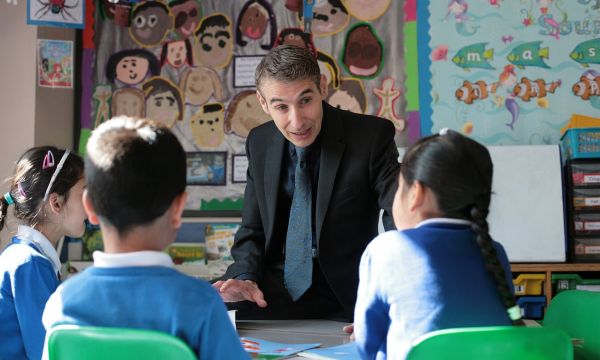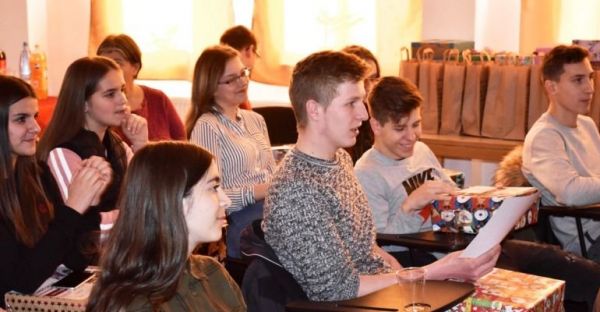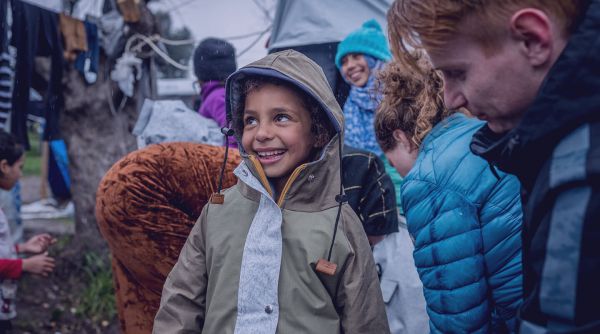primary school in Essex has won a national dementia award for an innovative intergenerational project, which brings together isolated older adults and children in need of additional support with extraordinary results.
The project at Downshall primary school in Ilford is one of a growing number of intergenerational initiatives in the UK designed to bring benefits to both old and young, while helping to fill the gaps left by cuts to local community support services.
At Downshall, older adults experiencing isolation, depression and early dementia are referred to the project by health teams. They then come into school with volunteer support workers and take part in regular activities including music, reading and games with reception and year 4 children.
The children’s progress is monitored to measure impact. According to the most recent data, while nationally reception age children make six steps of progress over the year, children taking part in the Downshall intergenerational provision make 10.
Contrary to usual trends, boys make better progress than girls, with the biggest impact seen in developing relationships – an important measure among young children – with marked improvements in communication, language, reading and writing. “The project has gone from strength to strength,” said the headteacher, Ian Bennett. “The children have made such improvements across the board.”
The starting point for Bennett is that it is the children’s needs that are paramount, but the participating adults benefit hugely from purposeful activity, enjoying helping others and socialising not only with the children but other older adults. “We are really making a difference to lives,” Bennett said.
One of the participants described looking forward to seeing the children every week and missing them during the holidays. “I feel this project is such a good idea. I do get lonely but when I’m here I’m always surrounded by good company,” Sara Apoolingum said. “I feel every moment I spend here is magical, whether it’s with the children or all the adults.”
David Hinchcliffe, a consultant old age psychiatrist at North East London NHS foundation trust, helped set up the project two years ago. Since then, primary schools in neighbouring boroughs and other mental health trusts have expressed interest in developing similar initiatives.
“One of the reasons we set it up was to try to tackle the growing problem of loneliness and social isolation,” he said. “Local authorities have had their budgets slashed for a number of years. We are having to think creatively about how we can come together as a community and keep everybody engaged and active.”
Downshall is not alone in its efforts to bring together different generations. Stephen Burke, a director at United for All Ages, which campaigns on the issue, said there had been a proliferation of intergenerational projects, with thousands of links being forged between care homes, nursery and primary schools across the UK.
“The growth has been phenomenal. It’s a grassroots movement. It’s not been led from central government or by national policy. It’s being done by people who think it’s the right thing to do. We are going to see many more of these [projects] taking off.”
What was needed, said Burke, was proper evaluation of the projects that were already up and running to show the impact and potential benefits to those involved. Anglia Ruskin University (ARU) has just published research into a similar project involving a school in Essex working with a local care home with very positive findings.
The Maldon Up project involved about a dozen year 6 pupils from All Saints Church of England primary school in Maldon who paid regular visits to nearby Longfield care home for two years. The initiative, supported by the NHS Mid Essex clinical commissioning group, aimed to encourage interaction between the generations, using board games, arts and crafts, and tablet-based activities suitable for residents with dementia.
Researchers found that children grew in confidence and developed emotional awareness and empathy towards the older adults. Many care home residents were “uniquely transformed” by their time with the children, experiencing an uplift in mood. The sessions also acted as a trigger for retrieval of long-term memories.
Rebecca Chandler, a research assistant at ARU’s positive ageing research institute, said the experiences of the children, older adults and the care home staff were overwhelmingly positive.
“The journey and progress has been remarkable,” she said. “The project provides children with an understanding of ageing, dementia and the lives of others, but they have also benefited from drawing upon the life experience of the residents and found that stimulates their own learning.
“The atmosphere in the care home has been enlivened and uplifted, and this spills over into the staff’s work environment.”



